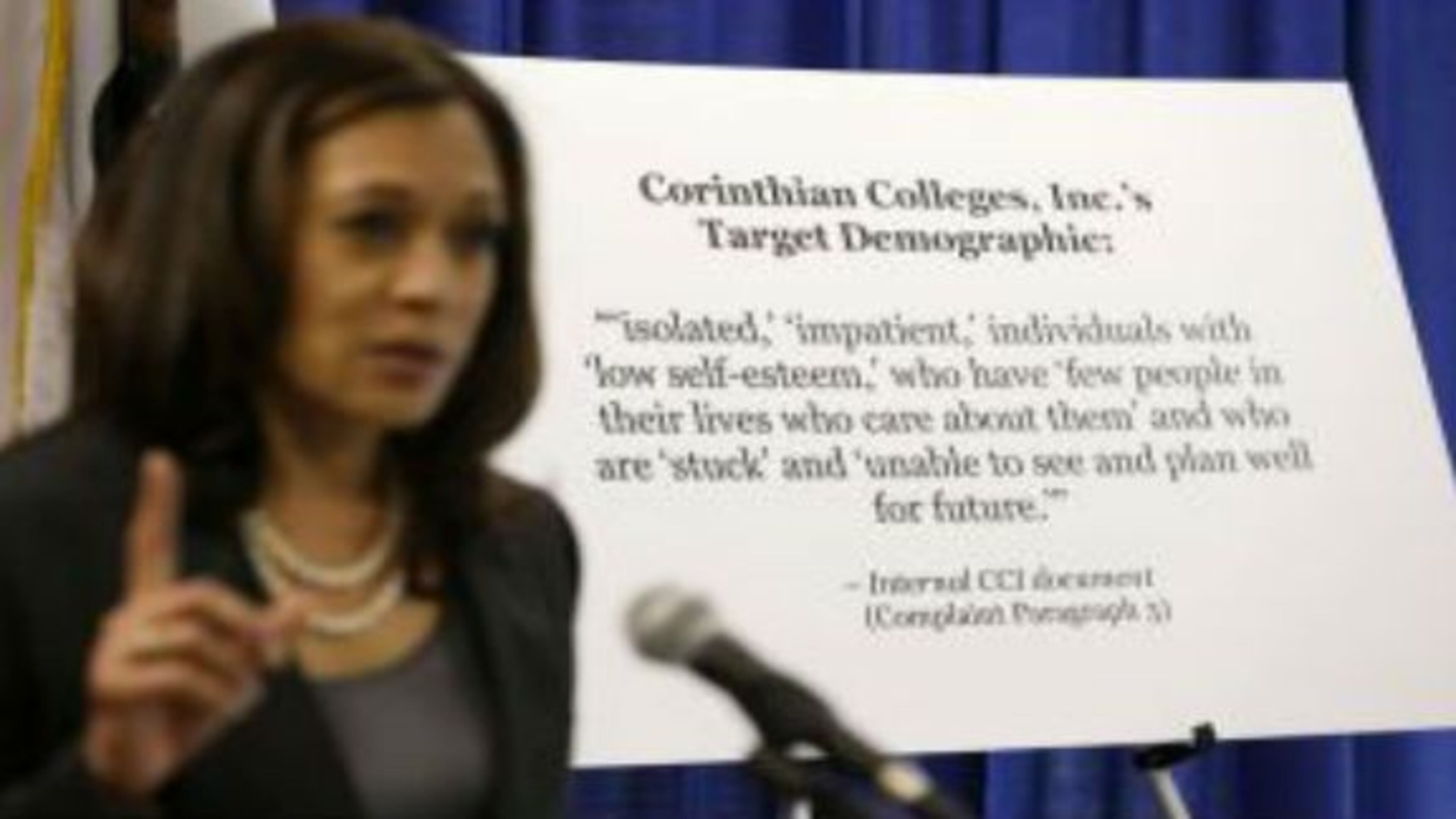Finally, effective action against for-profit "higher education" ripoff

Under new regulations that take effect today, colleges that want to be eligible for federal student-loan programs will have to document that most of their graduates are making the minimum amount of money that would be needed to repay those loans.
That doesn't seem too much to ask. It protects the federal government and the taxpayer from making loans that can never be repaid, and it protects unsophisticated students who would otherwise get so deep in debt that they can never dig themselves out. But here's the rub: According to the Department of Education, some 99 percent of the so-called "schools" affected by the rule will be for-profit businesses that have been using the student-loan program as a honey pot to enrich themselves, leaving their students -- including former military members -- uneducated and unable to repay the loan.
And those for-profit colleges have acquired friends in powerful places.
In many cases, those colleges have acted as predators, treating students as just a mechanism for extracting billions of dollars a year from the federal government while offering little in terms of education. Such schools don't give a damn whether their incoming students are qualified or can do the work; they also don't care if the students graduate or get a job afterward. All they care about is whether they can get those warm bodies qualified to tap into the student-loan program and get the gravy flowing.
Some of the numbers are pretty jaw-dropping. For example, a Senate investigation found that in 2010, such schools spent an average of 22.7 percent of their revenue on "marketing, advertising, recruiting and admissions" to bring in more students through the turnstiles, but just 17.2 percent on educating those students. And according to the Department of Education, some 72 percent of for-profit career programs produce graduates who make less than high-school dropouts.
All that, and it's financed almost exclusively by the U.S. taxpayer. In 2013 alone, for-profit schools collected $22 billion in federal tuition assistance, and while students at such schools account for just 11 percent of student loans, they account for 44 percent of defaults.
It's a scandal, and the government shares in the blame. According to experts, many of the problems can be traced to a deregulatory action by the Bush administration that for the first time allowed schools to pay recruiters based on how many students they successfully enrolled and got signed up for student aid. The more students they signed up, the more money they made, so naturally they began to drag in people off the street to sign up. It was repeat of the mortgage scandal, just in another setting.
Even now, Republicans in both the House and Senate are pushing legislation that would undo the new rules. Proposed budgets in both the House and Senate would strip the Department of Education of the power to enforce them. Marco Rubio, Jeb Bush and other GOP presidential contenders have condemned the rule as well, with Bush calling it "a sledgehammer to the entire field of higher education." (Mitt Romney was also an enthusiastic defender of the industry, which backed his campaign.)
Some of that support probably reflects an ideological preference for private enterprise, although it's beyond me how an industry that relies on the federal government for almost all of its revenue can be considered private enterprise and off-limits to regulation. I also have a hard time understanding how a general preference for private-enterprise solutions becomes a willful blindness to the grotesque, wasteful excesses that such solutions can sometimes produce.
Finally, even if you believe that the government has no role in protecting students from such scam operations, at the very least government shouldn't be a willing, knowing accomplice to fraud. Is that too much to ask?
More Stories
The Latest


